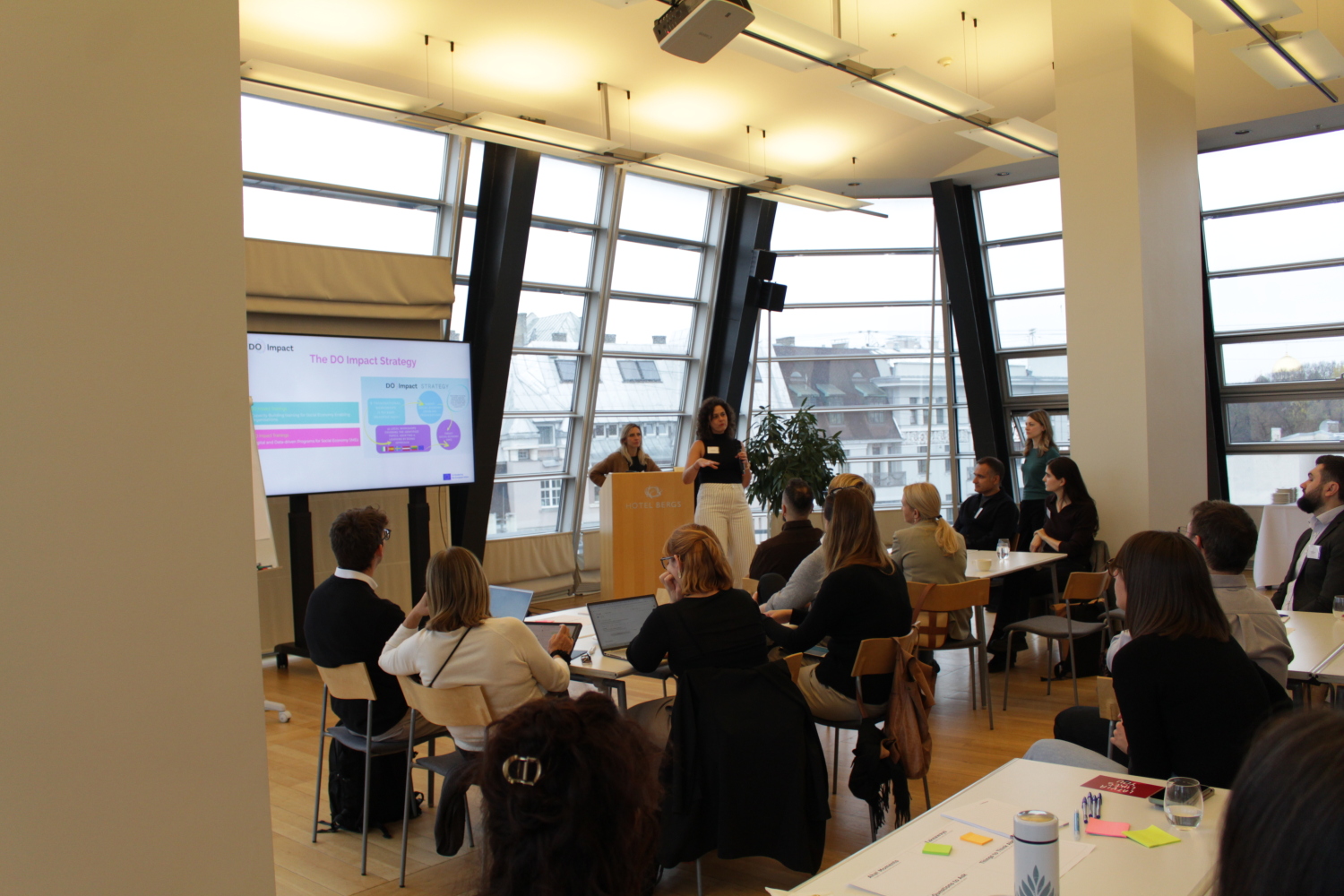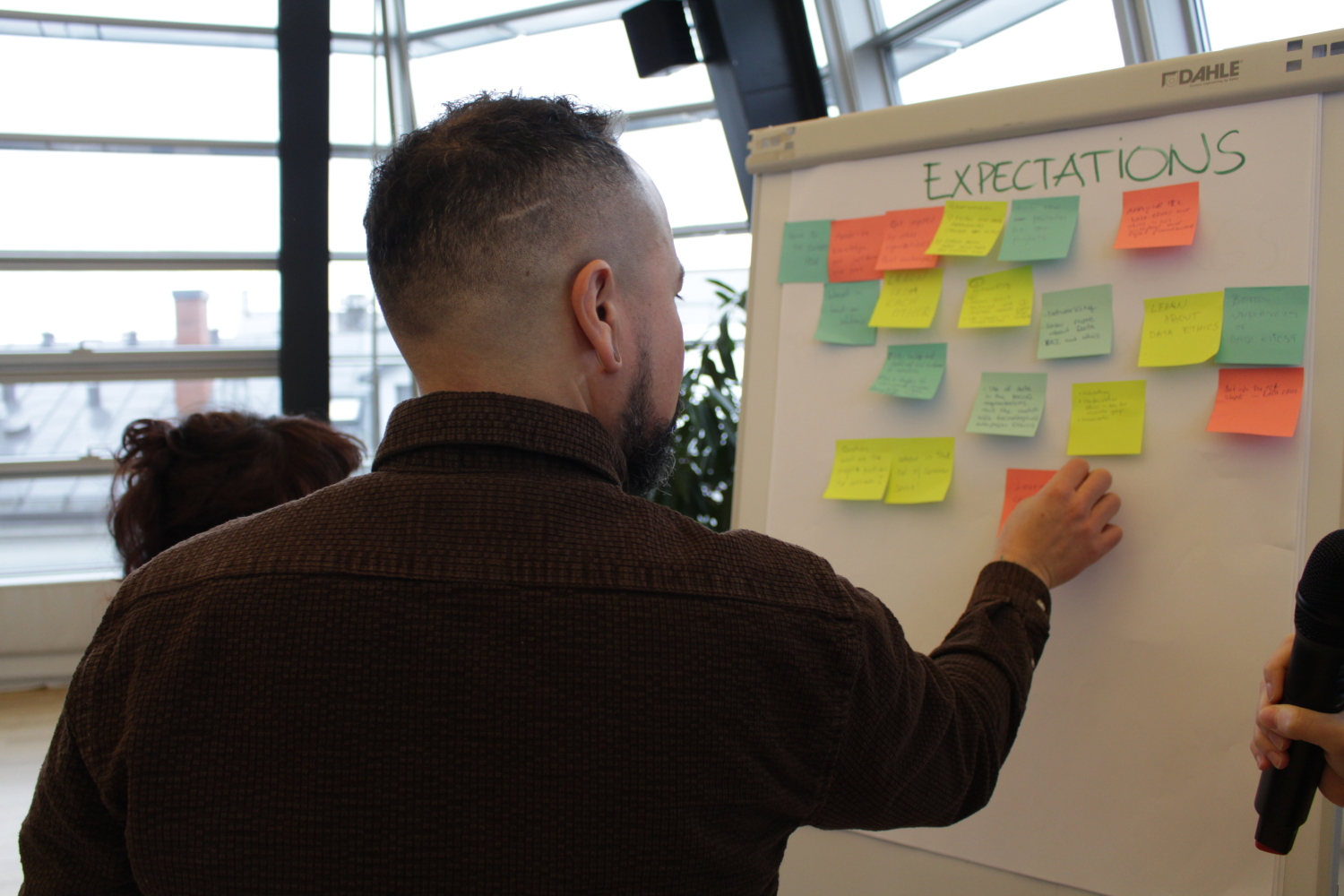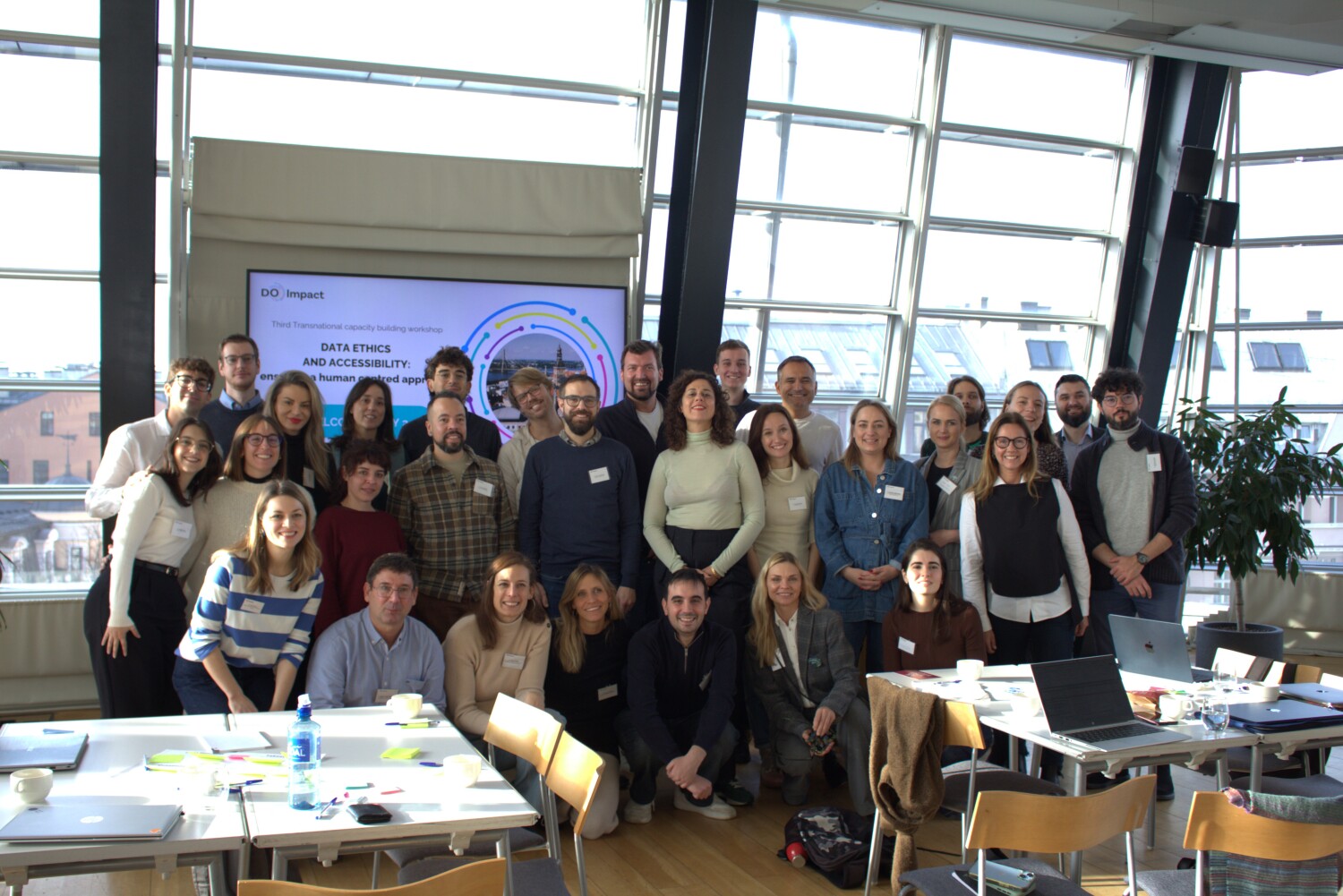Author: Social Entrepreneurship Association of Latvia
Reading time: 5 minutes
On 6 and 7 November, Riga became the meeting point for social economy support organisations from across Europe. The Social Entrepreneurship Association of Latvia (SEAL) hosted the third Transnational Workshop of the DO Impact Capacity Building Programme — two full days dedicated to data ethics.
Sounds heavy? Actually, it wasn’t. Between deep discussions, hands-on workshops, and coffee breaks full of conversations and laughter, it turned out that talking about data privacy, AI, and consent can actually be inspiring — even fun.
The first day was all about data principles in practice. Instead of long lectures, participants jumped straight into real-life situations — figuring out how to make data collection more human-centred, how to get consent from the data owners, and how to design forms that don’t ask for too much information.

As one participant put it: “Data ethics isn’t a policy you print once a year — it’s a conversation you keep having.”
The second day went deeper into the legal side — GDPR and AI ethics, and what they actually mean for organisations that care about social impact.
Most problems don’t come from complicated laws — they come from simple everyday things. For example:
- Leaving documents on a printer.
- Posting photos of children without parental consent.
- Keeping old data “just in case”.
Simple habits can make a big difference. Every organisation should know how long they store data, why they need it, and who has access. And yes — every organisation should have a privacy policy ready to show anyone who asks.
The data ethics workshops received enthusiastic feedback — participants appreciated not just learning what’s right, but actually practicing how to do it. Learning didn’t stop at the session doors. Many participants said their favourite part was simply meeting people, sharing experiences, and building connections. The World Café session and project presentations helped everyone discover what others are working on — and many new collaboration ideas were born right there in the room.
Lessons We’ll Remember:
- Non-material harm is real. GDPR also covers emotional and reputational damage, not just financial losses.
- Consent must be clear. Especially when publishing photos — always ask for explicit permission, ideally with a two-part sign-up sheet: one for event participation, one for consent to use images.
- Big companies still get it wrong. Participants shared stories of getting sales calls they never agreed to — proof that some data still gets sold around. No consent? Then it’s illegal.
- Data controllers need curiosity. Ask the right questions, limit what you collect, and delete what you don’t need.
Huge thanks to everyone who filled those two days with ideas and energy and especially to the lectors: Prof. Dr. Aleksandrs Potaičuks, Kristofers Kalniņš-Liberis and Wojtek Wilk!

What’s Next?
We’re not done yet! The next workshop will take place online on 29 January 2026, online. This time, we’ll be diving into measuring social impact through digitalisation and data use.
Two days, dozens of conversations, and one big reminder: ethics starts with people.
And when those people are curious, kind, and ambitious — like this group — even GDPR can feel like an adventure.

